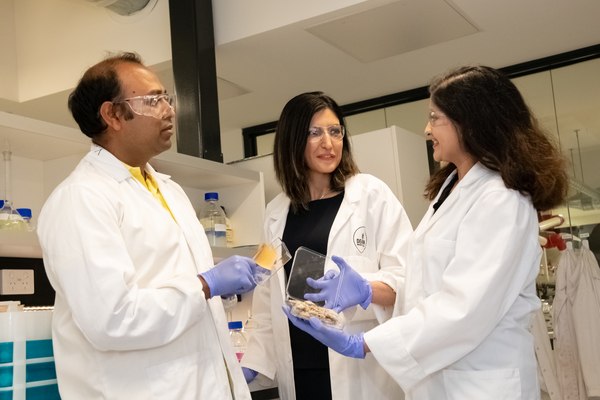
Geelong researches have worked out how to turn plant wasten into eco-friendly biodegradable plastic.
Lead researcher Deakin University’s Dr Maryam Naebe and her team spent more than 18 months working out how to turn cotton gin into “bioplastic”.
“About 29 million tonnes of cotton lint is produced each year but up to a third of that ends up as cotton gin trash, where it’s then sent to landfill or burned,” Dr Naebe said.
“Adding value” to the waste would deliver a sustainable alternative to environmentally-damaging plastics that was also safer and cheaper to mass-produce, she said.
“Compared to synthetic plastics, our bioplastic is made without the need for toxic chemicals.
“The bioplastic can biodegrade and turn into soil, which will then in turn be used to grow cotton, resulting in cotton gin trash during the ginning process, which can then be repurposed again into bioplastic.”
The material could also provide the cotton-farming industry with more sustainable options, such as providing packaging for seeds and fertilizer, according to the researchers, Dr Naebe said.
The team is now applying the process to other organic waste and fibrous plant materials such as lemongrass, almond shells and wood shavings.






